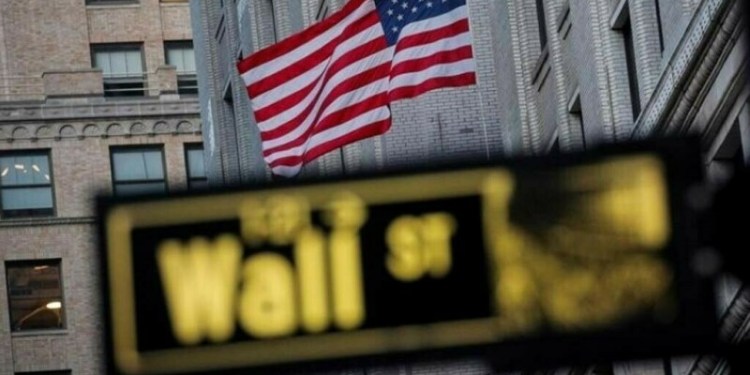By Giselda Vagnoni and Crispian Balmer
ROME (Reuters) – When Prime Minister Giuseppe Conte rose to his feet in parliament on Wednesday to announce his budget accord with Europe, the normally ever-present heads of his government’s two coalition parties were nowhere to be seen.
Instead, Conte was flanked by Economy Minister Giovanni Tria and Foreign Minister Enzo Moavero Milanesi — two men with no political ties who had played vital roles in helping the prime minister secure a compromise deal with the European Commission.
The image spoke volumes.
Backed by establishment figures and pressure from the markets, the three mild-mannered men had tamed the anti-EU populists within the ruling League and 5-Star Movement, and had forced them to abandon their damaging fight with Brussels.
“In the end the parties realized that their budget did not have magical powers and that they were putting themselves in a situation that was far worse than they anticipated,” said a senior government figure, who declined to be named because of the extreme sensitivity of the issue.
The struggle over the 2019 budget in the eurozone’s third largest economy shows how the old Italian elite still wields considerable strength behind-the-scenes and is working to temper the more radical tendencies of the anti-system ruling parties.
When the cabinet unveiled the budget in October, it targeted a deficit equivalent to 2.4 percent of gross domestic product — three times bigger than the previous government had promised.
Calls by Tria and Moavero for a less aggressive deficit were brushed aside. The head of the 5-Star, Luigi Di Maio, jumped onto the balcony of government headquarters to raise his fist in triumph, while League leader Matteo Salvini breathed defiance.
“We will not backtrack by even half a millimeter,” Salvini told reporters in October after the Commission had denounced the budget as an unprecedented breach of EU fiscal rules and warned it would impose sanctions on Rome unless changes were made.
THE PRESIDENT’S PARTY
The senior government source said Salvini and Di Maio were ill advised by the euro-skeptic European Affairs Minister Paolo Savona, who had argued that the Commission would back down because it was weak and almost at the end of its 5-year mandate.
“By contrast, precisely because the Commission was at the end of its mandate it did not have the political power to stray too far from the rulebook,” the source said.
Savona, whose original nomination as economy minister was vetoed by Italian President Sergio Mattarella due to his critical view of the euro, declined to comment.
Political sources said Mattarella also played an important role, backing the cabinet moderates and repeatedly urging Di Maio and Salvini to accept a face-saving compromise.
“This budget is a defeat (for the coalition parties) and a victory for Mattarella’s party,” Giorgia Meloni, head of the rightist Brothers of Italy group, said on Thursday.
The Commission blind-sided Rome by threatening Italy with disciplinary measures over its high debt, not its deficit — a mechanism that can drag on for years and one that it could initiate immediately without awaiting 2019 deficit data.
“It is impossible to deny that facing infringement proceedings that would have put Italian accounts under review for seven years would have brought a very high political cost,” Conte said in an interview with Corriere della Sera newspaper on Thursday.
The government faced additional woes, particularly in the markets where investor concerns pushed bond yields higher, hiking borrowing costs which started to hurt the real economy. This alarmed business leaders, who had previously been sympathetic to the League, but were now swift to protest.
CREDIBILITY HIT
By the end of November the League and 5-Star changed their tune and empowered Conte, a little-known law professor with no political experience before becoming premier in June, to lead negotiations with Commission President Jean-Claude Juncker.
Those talks resulted in Wednesday’s accord, whereby Italy agreed to lower its 2019 deficit to 2.04 percent of GDP and also cut its economic growth forecast to 1.0 percent from a previous 1.5 percent that had been deemed wildly over-optimistic.
The deal allowed the government to forge ahead with its flagship programs — income support and earlier retirements — but the sums dedicated to these measures were scaled back.
“Conte was the best of the lot of them in the Europe talks,” said an official close to the president, adding that Tria’s credibility had been hit by being initially forced to defend Rome’s budget line in Brussels.
As in any negotiations, the Commission also had to concede ground, accepting a deficit that was well above the goal of 0.8 percent that have been agreed with the previous government.
It also approved a set of financial promises from Rome that critics say are highly unrealistic, such as a pledge to raise some 20 billion euros in 2019 from unspecified asset sales.
“The Commission and Italy have signed up to a huge mess,” said Roberto Perotti, economics professor at Milan’s Bocconi University and a former government adviser on public spending.
“Both sides are pretending they believe in it but the numbers simply don’t add up.”
To sweeten its offer, the government additionally promised to raise value-added tax (VAT) and other duties by a massive 23.1 billion euros in 2020 and 28.8 billion in 2021 unless it can find other ways to meet a new array of targets.
Opposition leaders said only parties that had no intention of remaining in power would make such a commitment.
But the League’s economic spokesman Claudio Borghi hinted that these pledges could change and that much would depend on next year’s European parliamentary elections, when more radical parties like his own hope to trounce the old, mainstream forces.
“VAT is negotiated every year and if the elections go as I hope, Salvini could replace Juncker,” he wrote on Twitter.
Source: Investing.com



























